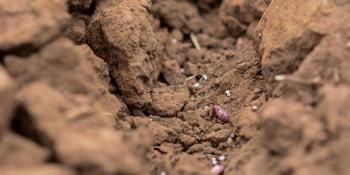4P1000 receives Future Policy Vision Award from the World Future Council

The 4P1000 Initiative promotes a global increase in soil organic carbon by 0.4% in the top 30-40 cm of agricultural soils to increase agricultural productivity, adaptation, and mitigation of climate change.
The World Future Council in cooperation with the United Nations Convention to Combat Desertification (UNCCD) dedicated the 2017 Future Policy Award to policies that effectively address land and soil degradation, related risks to food security and livelihoods, and help secure a sustainable and just future for people living in the world’s drylands.
The 4P1000 Initiative won the Vision Award for communicating a new concept for mitigating climate change through the annual increase in soil organic carbon, encouraging a transition towards sustainable agricultural production and development, and promoting farming techniques which combat soil erosion and improve soil health.
4P1000 scored well on all of World Future Council's Future-just Policymaking Principles, including:
- Sustainable use of natural resources
- Equity and poverty eradication
- Precautionary approach
- Public participation, access to information and justice
- Good governance and human security
- Integration and interrelationship
- Common but differentiated responsibilities.
Read more:
- 4P1000 Initiative website
- CGIAR gets serious about soil carbon as home of 4p1000 initiative, a Huffington Post piece by Alain Vidal, August 23, 2017.
- What is CGIAR doing on soil carbon and climate change? A summary of action written by Lini Wollenberg, June 28, 2017.
- Saiz G, Albrecht A. 2016. Methods for Smallholder Quantification of Soil Carbon Stocks and Stock Changes. In: Rosenstock T, Rufino M, Butterbach-Bahl K, Wollenberg E, Richards M. (eds) Methods for Measuring Greenhouse Gas Balances and Evaluating Mitigation Options in Smallholder Agriculture. Springer.
- Video on soil carbon measurement methods: Measuring soil organic carbon on smallholder farms in Ghana
Julianna White is the program manager for low emissions development research at CCAFS.



